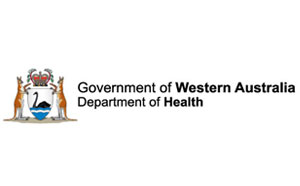Information from Dept of Health - Shellfish and fishing warning for Mindarie Marina 2017
Published Friday, 15th December 2017
The Department of Health is advising people not to eat fish, crabs or shellfish collected from Mindarie Marina after recent testing confirmed potentially toxic microscopic algae at elevated levels.

Media release below from the Department of Health regarding microscopic algae detected at Mindarie Marina.
WA Health Environmental Health Director Jim Dodds said the detected microscopic algae ‘Alexandrium spp.’ could produce paralytic shellfish poisoning in people who ate the affected seafood.
"These algae, which are not visible to the naked eye, can produce a very potent neurotoxin which could be absorbed by filter feeding shellfish and, to a lesser extent, potentially consumed by crabs and fish. Normal cooking processes will not destroy these toxins.
In the worst case scenario, people who consume the affected shellfish, crabs or fish, can suffer muscular paralysis,” Mr Dodds said.
Other symptoms include tingling or numbness of the lips, a prickliness sensation around the fingertips and toes, nausea or vomiting, impaired balance, dizziness, slurred speech, double vision, weakness, difficulty in swallowing or breathing, loss of fluids and diarrhoea.
“Anyone who has consumed shellfish, crabs or fish collected from the marina and experiences any of these symptoms should seek urgent medical attention, particularly if they feel any respiratory distress. Do not discard uneaten portions of mussels or other shellfish,” Mr Dodds warned.
Shellfish includes oysters, mussels, clams, pipis, scallops, cockles and razor clams.
People should avoid eating wild shellfish collected recreationally as their safety cannot be guaranteed. This is particularly the case in rivers, estuaries or other waterways where there is an increased likelihood of contaminant or nutrient inputs that can lead to increased microscopic algae growth.
Mr Dodds said farmed shellfish purchased in supermarkets and other commercial outlets in Western Australia are not affected as there is a strict quality-assurance program to ensure they are safe for human consumption.
“Other recreational activities including swimming and boating are not affected by this species of microscopic algae.”
Not all waterways are always monitored for algal blooms and anyone who sees or suspects an algal bloom in a waterway, should report this to the Department of Water and Environmental Regulations’ ALGALWATCH during office hours on 6250 8064 or to the local government authority for assessment.
The Mindarie Marina and City of Wanneroo will continue to monitor algae levels and provide advice to the Department of Health.
Further information regarding wild shellfish collection is available on the Department’s consumer website HealthyWA (external site).
More articles in the news archive.